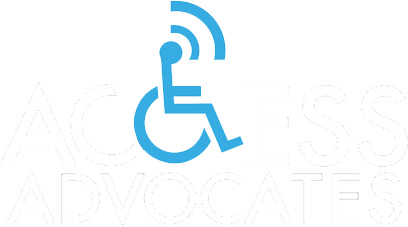 Access to the courts is a fundamental right for all Americans under the Constitution. A recent report by New York Lawyers for the Public Interest shows, however, that access to New York City courts for people with disabilities is very problematic, even 25 years after the passage of the Americans with Disabilities Act (ADA). The report finds that people with disabilities, especially those with mobility impairments, are unable to fully participate in the justice system because they are physically impeded from entering and navigating the city’s courthouses.
Access to the courts is a fundamental right for all Americans under the Constitution. A recent report by New York Lawyers for the Public Interest shows, however, that access to New York City courts for people with disabilities is very problematic, even 25 years after the passage of the Americans with Disabilities Act (ADA). The report finds that people with disabilities, especially those with mobility impairments, are unable to fully participate in the justice system because they are physically impeded from entering and navigating the city’s courthouses.
The types of problems noted by the report include:
- Separate entrances stigmatizing people with disabilities
- Inaccessible entrances
- Inaccessible bathrooms
- Inaccessible jury and witness boxes
- Courtrooms without bench cut-outs for people with wheelchairs to observe court proceedings
These problems impacted a wide range of people attempting to access the courts, including litigants, lawyers, judges, witnesses, jurors, and the public at large. For example, the report highlights one man who could not exercise his right to serve on a jury because the court did not have an accessible entrance and did not have a space for a wheelchair bound person inside the jury box.
At the Manhattan Criminal Court, criminal defendants in wheelchairs reported being carried up and down flights of stairs during the intake and booking processes because of the lack of accessible routes to navigate all areas of the courthouse. Other defendants, particularly those who make use of wheelchairs, reported being humiliated because of the lack of accessible bathrooms in the holding area.
Sadly, New York City is not the only place where people with disabilities experience unequal access to the justice system because of an inaccessible courthouse. If you or a loved one is experiencing difficulty accessing your local courthouse or any other facility because of its noncompliance with the ADA, please contact us. Our advocates are here to provide solutions.
